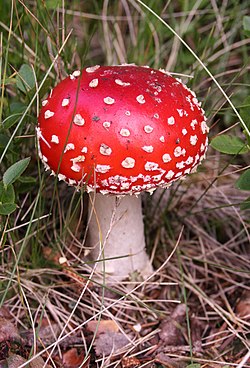I like surprises. I also like being predictable. A perfect blend of the two makes for fun, I think, so here we go with a bit of spontaneity.
My friend and fellow blogger, Robby Alan Marsh does something brilliant with his “Word Arsenal” series (click here to visit). While I’ve been pondering what to do with this blog (and what sort of material to give my web designer so she can start a site for me), Robby’s Word Arsenal gave me an idea.
I’ve been a word collector for many years. Whenever I read, I have my notebook nearby, and scribble down any word I find useful (mostly the ones I think I’ll forget). When I’m able, I like to search for these words in different dictionaries and make notes. I then store the notes in a Word file and keep them handy should I wish to search later (I usually cannot remember a word, but can remember something in its definition – so this file has become a thesaurus of sorts that relies on familiarity rather than categorization).
The file is huge, and I’m adding to the notebook every day. I am about 300 words behind, and will soon have to start a new notebook. Nonetheless, words are wonderful and inspiring, so I thought I’d share some here – ones whose stories I enjoy. But, only once in a while, and, I promise, I’ll change things up every now and again. After all, I like surprises.
Here are my friends for today (thank you Wikipedia for the image, and for the curious, my sources are: Merriam-Webster’s dictionary, Oxford English Dictionary, Cambridge English Dictionary, Wikipedia, Wiktionary, Online Etymological Dictionary, Dictionary.com and, occasionally, when more cross-referencing is needed, Google):
(1)
Press-gang: a detachment of men (usually in the army or navy) under the command of an officer, formerly employed to forcibly persuade others into military service, with or without notice; this action by a press-gang is known as impressment, and those liable are eligible men of seafaring habits between 18 and 45”

An agaric
(2)
Agaric: referring to the dried, fruiting body of an edible fungus, formerly used in medicine; also, any fungus of the mushroom-resembling family Agaricaceae; origin: late Middle English, from Latin agaricum, via Greek agarikon (“tree fungus”)
(3)
Patois: form of language that is spoken only in a particular area and that is different from the main form of language; origin, likely Old Friend, patoier (“handle clumsily, to paw”)
>>>>>>>>>>>>>>>
Got any favorites? Please let me know. I’m always on the hunt.
Now, back to writing.


Nice! Thanks for the plug… I grew up near Halifax, Nova Scotia, and used to read Thomas H Raddall’s books when I was young, which had many a tale of poor young men being “impressed” in the streets by the British for the war against the Yanks
Now that’s a neat story! Thanks for sharing that and making this post more personal. 🙂
Calliope.
When pronounced like it looks phonetically, it is used in ‘calliope syndrome’ – which means the habit bright kids have of learning a word (usually from reading), its spelling and meaning and usage, but pronouncing it phonetically when they have to speak it, because no one in their life has ever said the word in their presence.
As a small child (5? 6?) I got a New Testament stories book for Christmas, and wandered into my parents bedroom to ask them what the Tree of No-legged was. Even in my household, the kids all suffered from the syndrome. There was simply no way to get all the words they knew into conversations. The look on their faces when I explained how to pronounce one? Priceless.
Happy blogging.
Alicia
Thank you Alicia,
Calliope is a wonderful word and one I did not know, so I’ve added it to my booklet. At a glance, I like the definition: “a keyboard musical instrument resembling an organ and consisting of a series of whistles sounded by steam or compressed air”; also, the name of the Greek Muse of heroic poetry, which makes you think of what you mention about kids asking meanings of words.
Thanks for stopping by.
Onamatapoeia is a wonderful long difficult word. I think I spelled it correctly since my spell checker isn’t saying anything, but…not sure.
Also, there is a word which means, fear of long words, and it’s a very long word itself. 🙂 isn’t that funny?
onomatopoeia
(When in doubt, type a word in Google and see what comes up. Usually a word this unique will give you the right suggestion – spelled correctly.)
And that word you want: hippopotomonstrosesquipedaliophobia
(Again, thank you Google!)